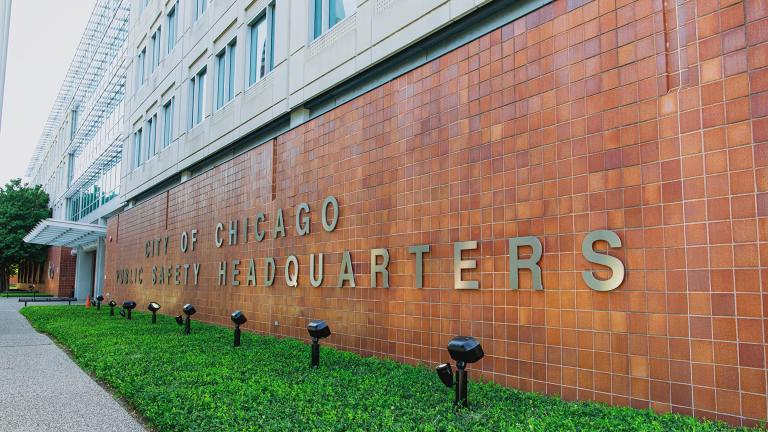Video: Federal oversight is coming to the Chicago Police Department. We discuss the consent decree with Kathy Hunt Muse, special litigation counsel with the ACLU of Illinois.
A federal judge on Thursday finalized a long-discussed consent decree in a lawsuit between Chicago and the state of Illinois, which promises to bring meaningful reforms to the city’s police department.
In a 16-page motion, U.S. District Judge Robert Dow stated that while it’s not perfect, the historic decree is “an important first step toward needed reforms of the Chicago Police Department and its policies.”
“As noted above, the Court is under no illusion that this will be an easy process,” Dow wrote. “It took a long time to get to this place, and it may take a long time to get out of it. With that said, there are good reasons to think that the conditions and incentives may be in place to start making progress right away.”
Once the decree takes effect, Dow and an independent monitor will work to continually evaluate the CPD’s efforts to implement reforms contained within the agreement until a point at which the department has reached “full and effective compliance.”
The judge said he is still working with all parties to select a monitor. Dow anticipates that process will be completed no later than March 1, 2019.
Chicago has been working toward a consent decree with now-former state Attorney General Lisa Madigan, who sued the city to force changes following the Laquan McDonald shooting and a scathing report from the U.S. Department of Justice about systemic problems in the police department.
Specifically, the lawsuit sought to enjoin the the police department “from engaging in a repeated pattern of using excessive force, including deadly force, and other misconduct that disproportionately harms Chicago’s African American and Latino residents.”
Dow recognizes the parties have already taken meaningful steps to protect the rights of citizens, pointing out that a surge of violent crime seen in 2015 and 2016 has begun to reverse in 2017 and 2018. He also notes the conclusion of trials against former Chicago police Officer Jason Van Dyke – who was convicted last year in McDonald's death – and three other officers accused of covering up that shooting have provided “some measure of closure to a very difficult period in the City’s history.”
A deal was initially struck between the sides last summer when a proposed consent decree was released to the public. Chicago Fraternal Order of Police President Kevin Graham last year blasted the proposed consent decree as “illegal and invalid.” The FOP also threatened to sue over that deal and filed motions to intervene in decree negotiations.
Dow denied those motions earlier this month, and in Thursday’s order reiterated the FOP’s “motions to stay approval of proposed consent decree during pendency of appeal are denied as moot.”
Graham on Thursday called the consent decree "one of the greatest abuses of the criminal justice system in Chicago’s history."
"It is nothing more than a politically motivated attack on the police and public safety by two machine politicians on their way out of office," he said in a statement, regarding Emanuel and Madigan. "We will continue to fight any policies, laws, or rules we believe violate our members’ rights and threaten the well being of the public."
Emanuel and CPD Superintendent Eddie Johnson issued a statement Thursday, hailing the judge’s order as a “step towards significant, lasting change.”
“This agreement builds on the strength of the reforms underway at the Chicago Police Department today, ensures there are no U-turns on that road to reform, and will help secure a safer and stronger future for our city,” Emanuel and Johnson said. “After seven attempts at police reform in the last century, Chicago now has an enforceable agreement that will stand the test of time.”
Cook County State’s Attorney Kim Foxx, likewise, recognized the consent decree as “historic action,” but noted that transparency and acknowledging past abuses is also necessary to restore the relationship between police and the community.
“Generations of fear and distrust don’t go away because there is a consent decree, repairing that fractured relationship goes beyond today’s action,” she said. “This is not the end of the road, but a mere checkpoint on the journey to reform.”
Contact Matt Masterson: @ByMattMasterson | [email protected] | (773) 509-5431
Related stories:
Deal Struck for Federal Oversight of Chicago Police Department
Consent Decree, Gang Database Front and Center at City Council
Parties Near Agreement on Chicago Police Consent Decree








